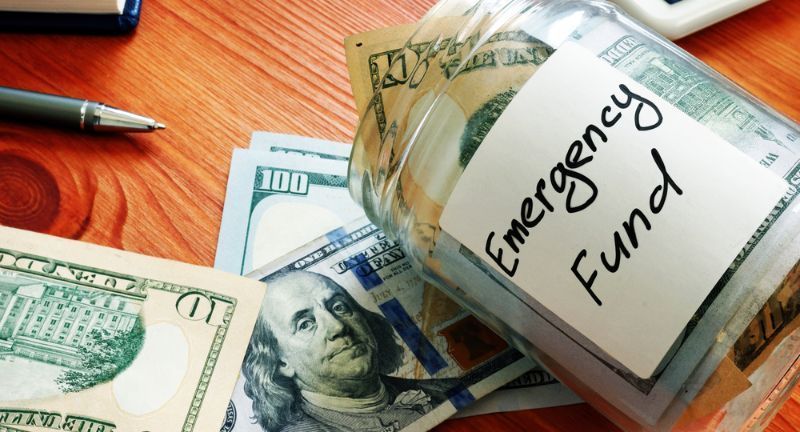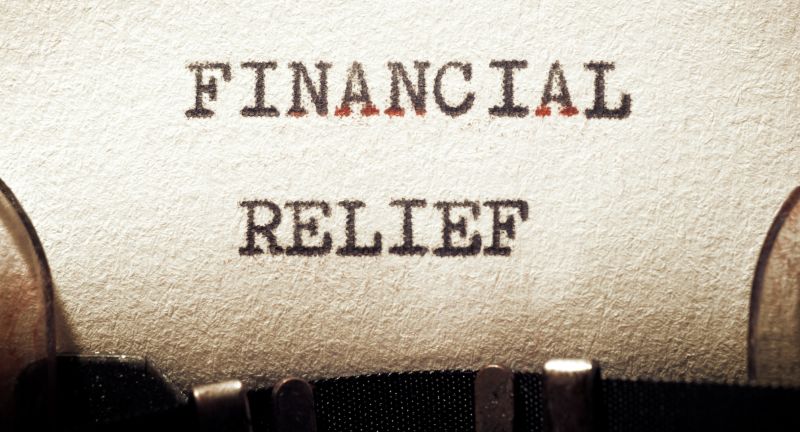NEWS
21 Important Steps To Take In A Tight Economy
Published
1 month agoon
Economic uncertainty can create challenges for individuals and families, but taking proactive steps can help you stay financially secure. From rethinking your budget to exploring new income opportunities, there are practical strategies you can adopt to navigate a tight economy. These steps not only help you manage current hardships but also prepare you for future financial stability. Here are 21 important steps to take in a tight economy.
Reevaluate Your Budget

Shutterstock
A tight economy requires a fresh look at your budget. Identify non-essential expenses that can be reduced or eliminated. Focus on necessities like housing, food, and utilities while cutting back on discretionary spending. Regularly reviewing your budget helps you stay in control of your finances.
Build an Emergency Fund

Shutterstock
Having a financial cushion is crucial during economic downturns. Aim to save three to six months’ worth of living expenses in a high-yield savings account. Start small if necessary, setting aside whatever you can afford each month. An emergency fund provides peace of mind and a safety net for unexpected expenses.
Cut Back on Subscriptions

Shutterstock
Streaming services, gym memberships, and other subscriptions can add up quickly. Cancel or pause any that you’re not using regularly. Many companies offer temporary discounts or flexible plans if you ask. Trimming these costs can free up money for more critical expenses.
Start Meal Planning

Shutterstock
Planning meals in advance helps you save money and reduce food waste. Stick to a shopping list and avoid impulse buys at the grocery store. Preparing meals at home is often cheaper and healthier than eating out. Meal planning is a simple but effective way to stretch your food budget.
Pay Down High-Interest Debt

Shutterstock
High-interest debt, such as credit cards, can quickly become unmanageable in a tight economy. Focus on paying down these balances as much as possible. Consider consolidating debts or negotiating lower interest rates with your lenders. Reducing debt frees up money for essentials and lowers financial stress.
Consider a Side Hustle

Shutterstock
Supplementing your income with a side hustle can provide extra financial stability. Look for opportunities that align with your skills, such as freelancing, tutoring, or selling handmade items. Online platforms like Etsy or Upwork make it easy to find gigs. Every additional dollar can help in tough times.
Use Coupons and Cashback Apps

Shutterstock
Take advantage of coupons and cashback apps to save on everyday purchases. Apps like Rakuten or Honey help you find discounts and cashback deals online. Many grocery stores also offer digital coupons through their apps. Small savings add up over time and can make a big difference.
Sell Unused Items

Shutterstock
Decluttering your home and selling unused items can bring in extra cash. Platforms like eBay, Facebook Marketplace, or Poshmark make it easy to sell everything from clothes to electronics. This step not only boosts your finances but also creates a more organized living space.
Negotiate Your Bills

Shutterstock
Call your service providers to negotiate lower rates on utilities, internet, or phone bills. Many companies are willing to offer discounts to retain customers, especially during tough economic times. Asking for a better rate or switching to a more affordable plan can result in significant savings.
Stay Informed About Assistance Programs

Shutterstock
Research local, state, or federal assistance programs that can provide financial relief. From food assistance to utility subsidies, there are resources designed to help during economic challenges. Staying informed ensures you don’t miss opportunities to reduce financial strain. Don’t hesitate to seek help if you need it.
Shop Secondhand

Shutterstock
Secondhand stores and online marketplaces are excellent for finding quality items at a fraction of the cost. From clothing to furniture, buying pre-owned can help you save significantly. Many thrift shops also support local charities, adding a feel-good aspect to your purchases. This strategy is both budget-friendly and sustainable.
Carpool or Use Public Transportation

Shutterstock
Cutting back on transportation costs is an effective way to save money during tough economic times. Carpooling with coworkers or friends can lower gas and maintenance expenses. If available, public transportation is often more affordable than driving. Every small saving adds up, making a big difference to your budget.
Focus on DIY Repairs

Shutterstock
Learning basic repair skills can save you money on home and car maintenance. From fixing a leaky faucet to sewing a torn piece of clothing, DIY solutions often cost less than hiring professionals. Many online tutorials make it easy to pick up new skills. Tackling repairs yourself builds confidence and stretches your budget.
Switch to Energy-Efficient Appliances

Shutterstock
Energy-efficient appliances can lower utility bills over time. Look for devices with ENERGY STAR certifications to ensure optimal savings. Although the initial investment may be higher, the long-term benefits outweigh the costs. Efficient appliances also reduce your environmental footprint, adding extra value to the switch.
Downsize Your Living Space

Shutterstock
If housing costs are a major strain, consider moving to a smaller or more affordable space. Downsizing can significantly reduce expenses like rent, utilities, and maintenance. Selling or donating unused items before the move can make the transition easier. Living within your means is key during a tight economy.
Invest in Reusable Products

Shutterstock
Reusable items, such as water bottles, shopping bags, and cleaning supplies, can save money over time. While disposable products might seem cheaper upfront, their recurring costs add up. Investing in reusable alternatives reduces waste and supports long-term savings. This habit is both economical and eco-friendly.
Plan Staycations Instead of Vacations

Shutterstock
Travel expenses can strain your budget during tight economic times. Instead, explore local attractions and enjoy the comforts of home with a staycation. Activities like hiking, museum visits, or home movie nights can be just as enjoyable. Staying local saves money while still allowing for relaxation and fun.
Refinance Your Loans

Shutterstock
If interest rates drop, refinancing your mortgage or student loans can reduce your monthly payments. Lower rates mean more money in your pocket to cover essentials. Speak with a financial advisor or lender to explore your options. Refinancing can provide much-needed breathing room during tough times.
Barter or Trade Services

Shutterstock
Bartering allows you to exchange goods or services without spending money. For example, you could trade babysitting services for lawn care. Local community groups and online platforms often facilitate these exchanges. Bartering builds community connections while helping you save cash.
Revisit Your Insurance Policies

Shutterstock
Regularly reviewing your insurance policies can help identify areas where you can save. Bundling home and auto insurance or increasing deductibles are common ways to reduce premiums. Ensure you’re not over-insured for your needs. Adjusting your coverage appropriately can free up funds for other priorities.
Invest in Skill Development

Shutterstock
Enhancing your skills or learning new ones can make you more competitive in the job market. Look for free or low-cost courses online, such as those offered by Coursera or LinkedIn Learning. Investing in yourself during a tight economy can open doors to better opportunities. Skill development pays long-term dividends.
Conclusion

Shutterstock
Navigating a tight economy requires strategic planning, discipline, and adaptability. By implementing these 21 steps, you can reduce financial stress, make the most of your resources, and prepare for future stability. Remember that even small changes can add up to significant improvements. With proactive efforts, you can weather economic challenges and emerge stronger.
More From Local News X
-


3 Sailors Rescued After ‘Several Shark Attacks’ Damage Inflatable Boat…
-


22 Old Social Norms Which Are Now Ridiculous
-


Robb Elementary School Shooting Memorial
-


Hi one of four black men in Santa Barbara, Says…
-


Texas Middle School Teacher Shares the realities of being a…
-


21 Key Financial Things You Must Do Before Retirement
-


Local Residents of Slavyansk Comment on Near Constant Shelling, Show…
-


20 Things The Middle Class Won’t Be Able To Afford…
-


21 Important Tools To Dig Your Way Out Of Debt
-


24 Amazing Benefits of Walking Daily
-


Schools need armed teachers and prayer, Kinney County, Texas sheriff…
-


22 Signs People Secretly Don’t Respect You
